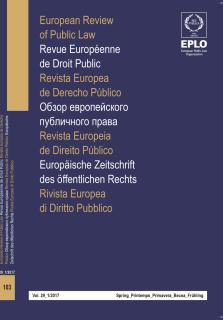
La prise en compte des standards européens
par le droit français des étrangers
Agrégée de droit public, maître des requêtes au Conseil d’Etat
Just as all - or almost all - branches of national law, the law on foreigners is now marked by the influence that the European laws have on it. In France, this influence has first been made apparent with regard to the reception of foreigners. The taking into consideration of European standards has therefore led in most of the cases to an increase in the protection granted to the foreigners, as is demonstrated by the developments in national law, in order to take into account the right to a normal family life. However, the European influence is sometimes more ambivalent as evidenced by the quasi disappearance of the constitutional right to asylum or the existence, fortunately very marginal, of reverse discrimination for the European citizens regarding the treatment normally reserved to the foreigners. More recently, the influence of European laws seems to concern more the issue of the return of the foreigners. Sometimes, this influence is limited, as demonstrated by the European and national case law on the right to be heard in administrative proceedings. In other cases, this influence is particularly evident and involves important developments in national law. This is the case regarding detention of foreigners.
Comme toutes les branches du droit interne ou presque, le droit des étrangers est désormais marqué par l’influence que les droits européens exercent sur lui. En France, cette influence s’est d’abord faite sentir s’agissant de l’accueil des étrangers. La prise en compte des standards européens a alors conduit dans la plupart des cas à un accroissement de la protection accordée aux étrangers, comme en témoignent les évolutions du droit interne pour prendre en compte le droit à mener une vie familiale normale. Mais l’influence européenne est parfois plus ambivalente comme en témoigne la quasi disparition du droit constitutionnel d’asile ou l’existence, heureusement très marginale, de discrimination à rebours pour les citoyens européens au regard du traitement normalement réservé aux étrangers. Plus récemment, l’influence des droits européens semble davantage intéresser la question de l’éloignement des étrangers. Parfois, cette influence est limitée, comme en témoigne la jurisprudence européenne et nationale sur le droit d’être entendu dans les procédures administratives. Dans d’autres hypothèses, cette influence est particulièrement marquée et implique des évolutions importantes du droit interne. Tel est le cas en matière de rétention des étrangers.





















